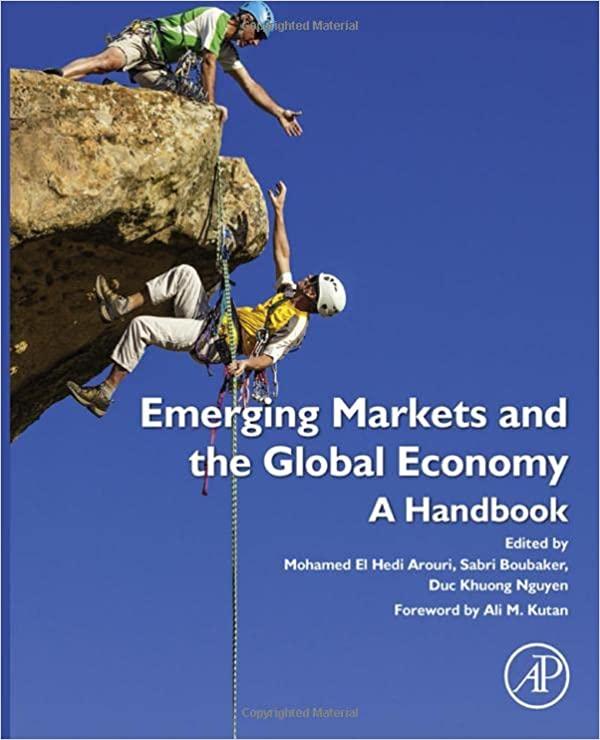Question
Sam is currently 30 years old. He works for TFH Inc., and earns $40,000 a year. He anticipates that the salary will grow at 3%
Sam is currently 30 years old. He works for TFH Inc., and earns $40,000 a year. He anticipates that the salary will grow at 3% per year. He has recently received a $100,000 inheritance. He is evaluating two different options in terms of how to best utilize the inheritance and savings from his salary. The goal is to have a handsome amount of savings when he retires. He anticipates to retire at age 65. Option 1: He will invest the $100,000 (inheritance) in a risk-free fund (today). The yearly interest rate that he will receive is 4% (compounded on a yearly basis). In addition, he plans to save 5% of his salary every year, and deposit it on a mutual fund every year. He is paid on a bi-weekly basis, but he will deposit his savings on the mutual fund at the end of the year. He expects to earn a return of 6% per year on this investment (compounded on a yearly basis). He will make the first deposit a year from today. His salary this year will be 3% more than $40,000 as the most recent yearly salary he has received is $40,000 per year. He will make his last deposit when he is 65 years old. Option 2: He can use part of the inheritance to complete an MBA program. It will take Sam 2 years to complete the MBA program (assume that if he decides to pursue the MBA program, he will start the program today). The total cost of the program will be $40,000. Sam will pay the total cost of the program at the beginning of the program (i.e., today). He will invest the rest of the inheritance in the risk-free fund. The yearly interest rate that he will receive is 4% (compounded annually). He expects that after he finishes the MBA program, he will get a promotion within a year, and his new salary will be $60,000 (he will receive $60,000 during year three). Sam expects that this salary will grow at a rate 4% per year. Once Sams salary becomes $60,000, he will save 6% of his salary, and deposit it on the mutual fund every year. He expects to earn a return of 6% per year on this investment (Compounded on a yearly basis). He will make the first deposit three years from today. He will make his last deposit when he is 65 years old. 1. If Sam chooses option 1, how much money he will have in his savings when he retires at the age of 65? Points: 10 2. If Sam Chooses option 2, how much money he will have in his savings when he retires at the age of 65? Points: 10 3. Which option should Sam choose? Points: 4 4. When Sam retires, he will put the saving (amount he has when he is 65 years old) in an annuity. The annuity will last for 20 years. How much can he withdraw every year in retirement (starting one year after retirement) so that he will exhaust his savings with the 20th withdrawal? The savings will continue to earn 6% (compounded annually) Points: 6
Step by Step Solution
There are 3 Steps involved in it
Step: 1

Get Instant Access to Expert-Tailored Solutions
See step-by-step solutions with expert insights and AI powered tools for academic success
Step: 2

Step: 3

Ace Your Homework with AI
Get the answers you need in no time with our AI-driven, step-by-step assistance
Get Started


